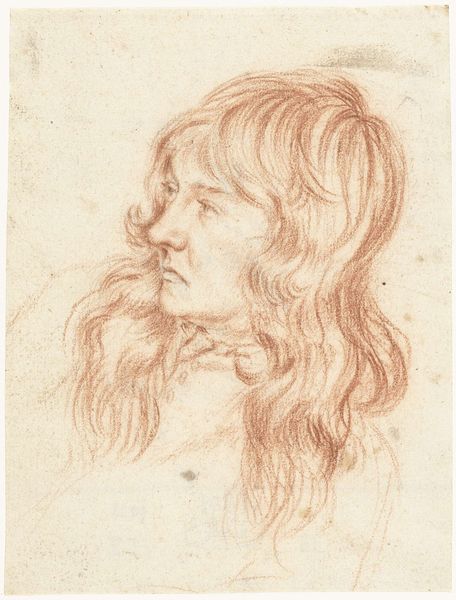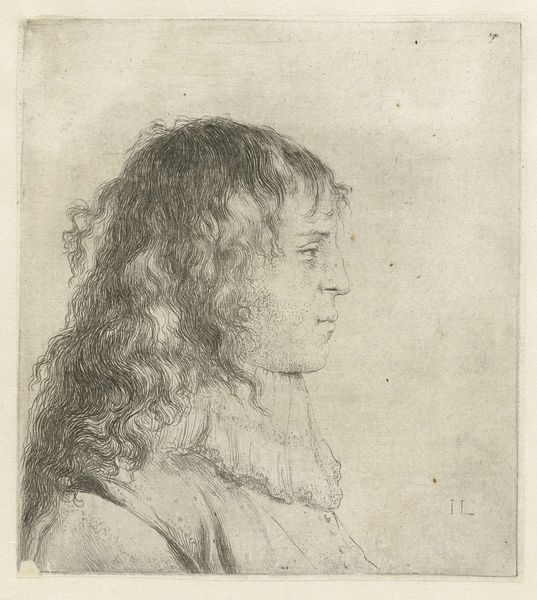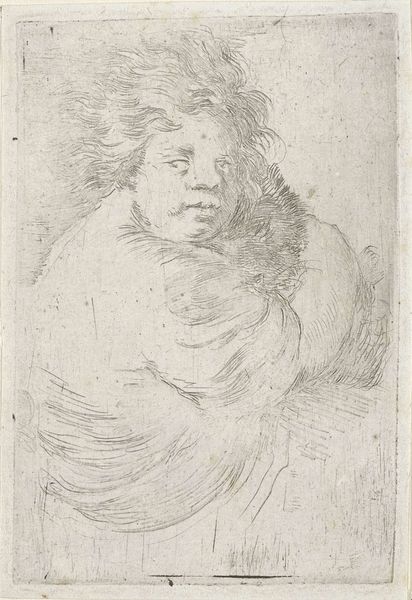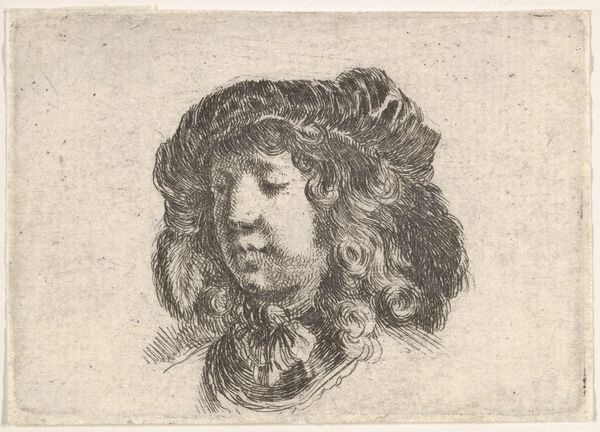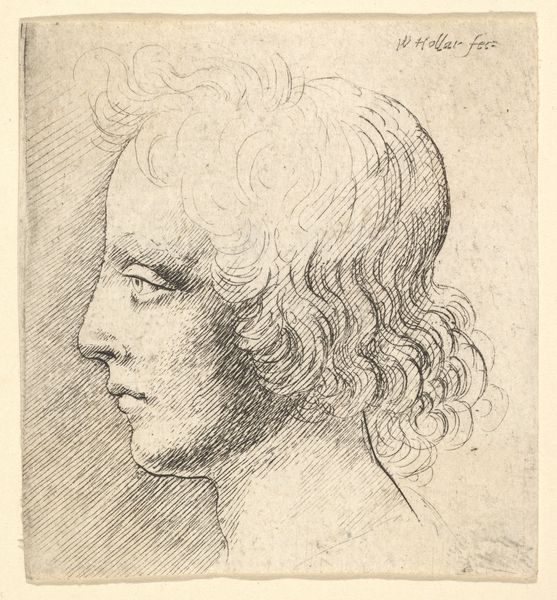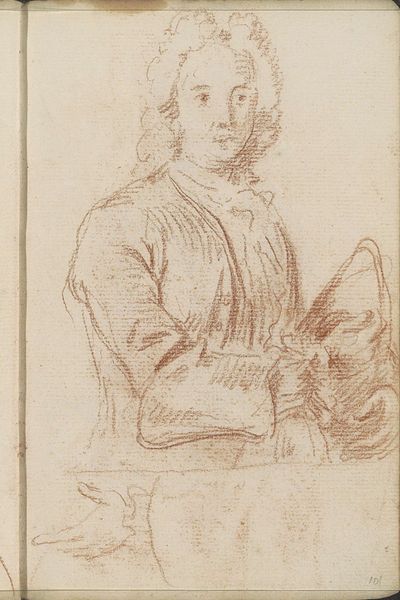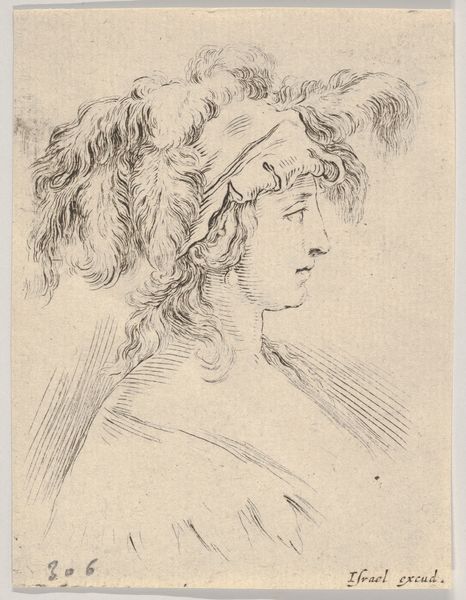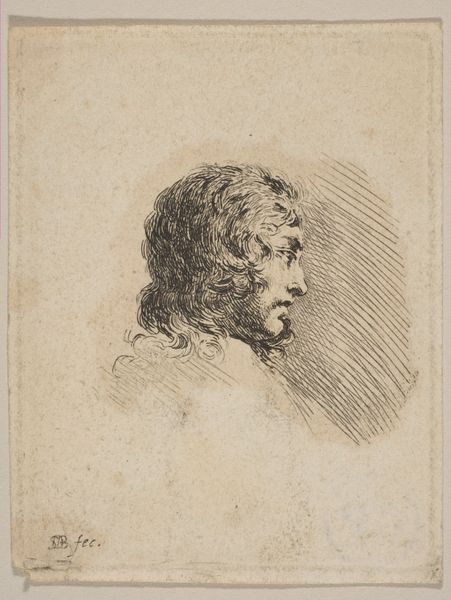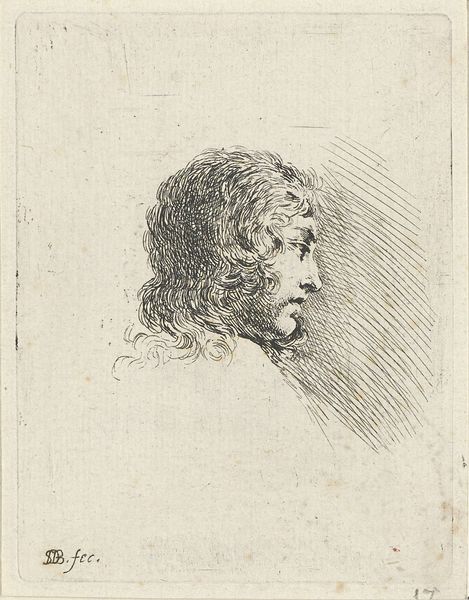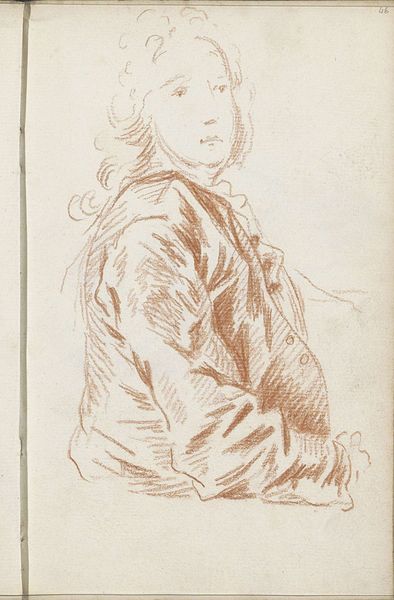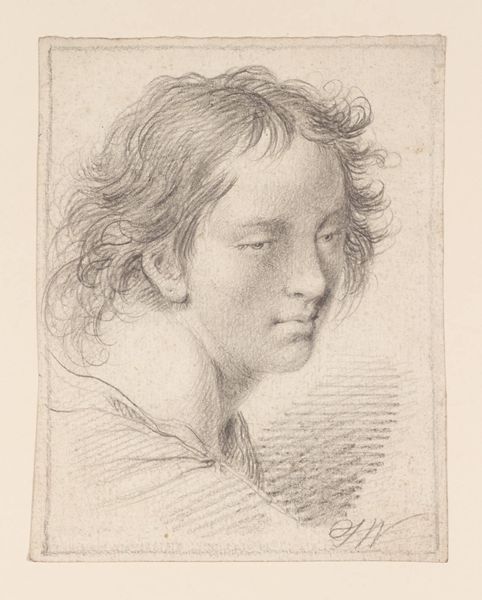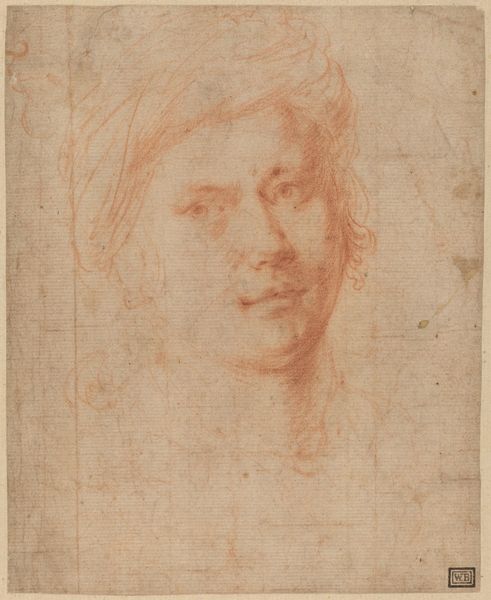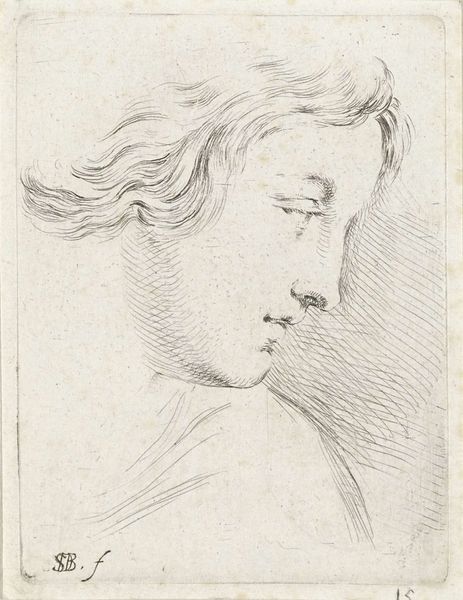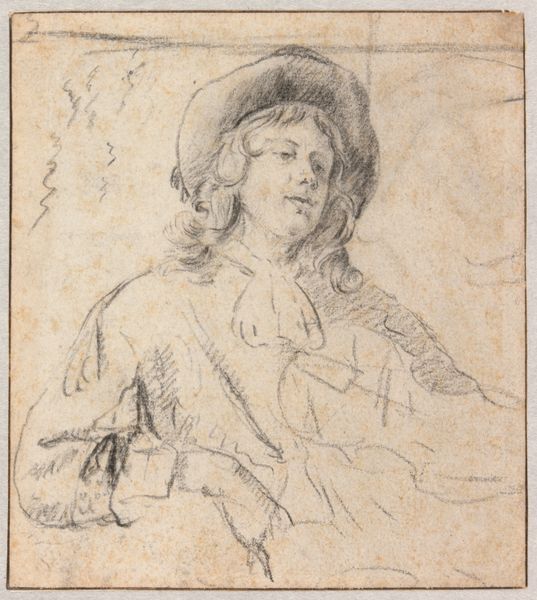
drawing, print, paper, pencil
#
portrait
#
drawing
# print
#
paper
#
pencil drawing
#
pencil
#
portrait drawing
Dimensions: 6 7/8 x 5 1/4 in. (17.4 x 13.4 cm)
Copyright: Public Domain
Jean de Saint-Igny made this red chalk drawing, "Bust of a Young Man," in France, likely in the early to mid-17th century. Drawings like this one were often studies, ways for artists to practice capturing the human form. The sitter's slightly tilted head and flowing hair are characteristic of the Baroque period. But what social function did these idealized portraits serve? Seventeenth-century France was a society of courtly display and aristocratic patronage. Artists like Saint-Igny were dependent on the favor of wealthy elites and the royal court. The image presents a vision of masculine beauty that would have resonated with those circles. To fully understand the drawing’s original context, one might consider the artist's biography, the circulation of similar images, and the prevailing aesthetic tastes of the French court. The meaning of art is contingent on such historical investigations.
Comments
No comments
Be the first to comment and join the conversation on the ultimate creative platform.
